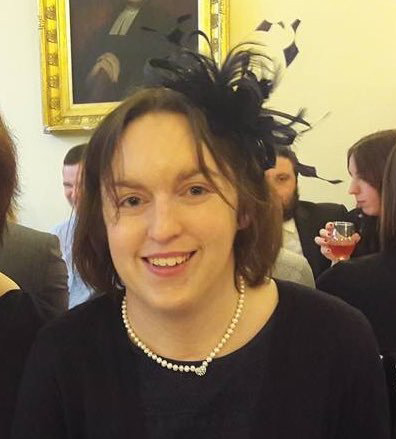I am Lowri Smith. I was diagnosed with a congenital heart condition at eight months old and went on to have open-heart surgery three times before I was sixteen. One of those surgeries – when I was two years old – was to fit an artificial mitral valve. Since then, I have been taking warfarin. At the beginning of the pandemic, I was given a self-test machine to check my own warfarin levels – this gives me a lot more freedom because I don’t need to visit my GP for blood tests as often as before.
I have lived in North Wales all my life but have received most of my specialist care in England. Since 2017 I have been travelling to the Royal Brompton Hospital in London to benefit from magnetic guided catheter ablation technique – with mixed results. Future heart surgery is almost guaranteed, as my current prosthetic valve will probably need replacing sometime within the next five to ten years.
My heart condition and the drugs I take to manage it, have resulted in other health problems and I am now seeing a liver consultant at Chelsea and Westminster Hospital. I have six monthly cardiac reviews with my consultant in Liverpool – a gentleman who has cared for me since my diagnosis over 30 years ago. He is due to retire this year and I will soon start my next chapter with a new consultant.
The following important personal experiences highlight the importance of a more holistic, person-centred approach that pays attention to the emotional health and wellbeing of those living with physical illness.
Post-ICU outpatient appointment
In 2018 I was an ICU patient at Royal Brompton Hospital. I couldn’t fault the care provided but when I looked back there were a lot of gaps in my memory relating to various events. Despite discussions with some of the team, I still don’t have all the answers and probably never will. Although many ICUs facilitate patient diaries throughout their stay, this is not a universal approach. A diary would certainly have helped answer some, if not all of my questions.
Following my ICU stay I was offered the opportunity to attend a post-ICU outpatient appointment, to meet with nurses, doctors, and psychologists from the unit all during one appointment. I personally found this useful and extremely reassuring. The psychologist was interested as to my thoughts on my admission and stay in ICU and whether I had suffered any lasting emotional effects. Fortunately, I had no lasting effects. The opportunity to visit the ICU was very important to me because met the team that cared for me. This was very important for me in terms of my emotional response to what I had been through; and also, for the staff who cared for me. This approach offered a compassionate and emotionally supportive step towards my recovery and healing.
Developing a support network
I was aged around 16-20 when I realised that there were others like me. At that time, I discovered a charity – The Somerville Heart Foundation – dedicated to supporting young people and adults with congenital heart defects (CHD). What struck me when attending their conferences was that virtually everyone in the room was a CHD patient and had similar experiences. Other people knew what it was like to go through life saving surgery. I realised that there were indeed other people who ‘got it’ and I was no longer feeling as isolated.
Being a CHD patient or a patient with any longstanding (chronic) illness can be isolating and lonely. Having opportunities to build emotional health and wellbeing by joining a network of people who have the same or very similar experiences can be transformative – helping with both physical and emotional well-being.
After-care and being on your own to manage
Inpatient care is usually very good. However, there is limited care provided once a patient is discharged – often not even a call to ask how a patient is coping physically or psychologically. This seems to have been the case regardless of which hospital I have attended. A follow-up appointment is usually for a few weeks or months later but nothing in the immediate aftermath.
Patients often feel particularly vulnerable, clinically, and emotionally, in the immediate aftermath of a hospital stay. When they no longer have the medical staff and infrastructure around them, life can feel precarious indeed. Aftercare in those early days is crucial for reassurance and advice – to avoid re-admission and to plan ahead for rehab where necessary and follow-on appointments.
Putting such protocols in place will surely help patients make a better – good for the patient and for the NHS.
Cardiac Rehabilitation
Three times I have had open heart surgery but as yet have not received what is considered routine cardiac rehabilitation. I don’t know why this is the case, but I understand that historically, outpatient cardiac rehab for congenital heart patients has not been forthcoming and many people have missed out.
Cardiac rehabilitation helps patients re-establish what exercise is safe for them to do following surgery and when. They learn the extent of their physical capabilities and develop confidence, whilst being supervised by physiotherapy staff. There is also the opportunity for the patient to discuss how they feel, to talk about anxiety related to ‘how much exercise is safe?’ and so on and share their worries about what may cause their next readmission and much more besides.
This is another situation where investment in aftercare that encompasses physiotherapy, clinical and emotional wellbeing conversations, guidance and support will benefit greatly the quality of life and life expectancy for cardiac patients.

